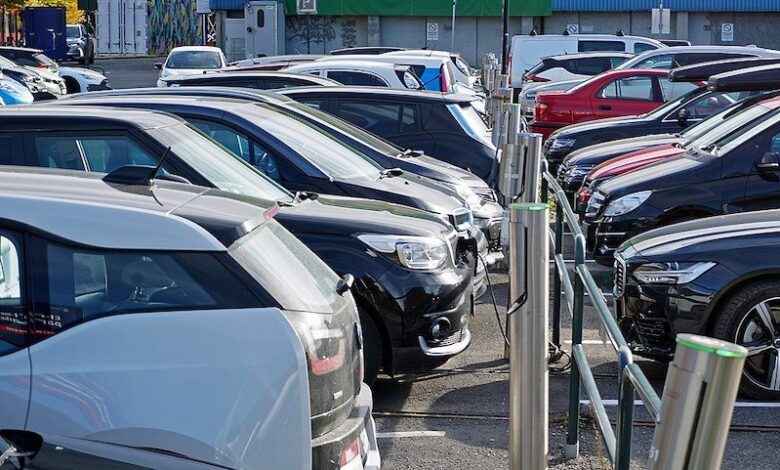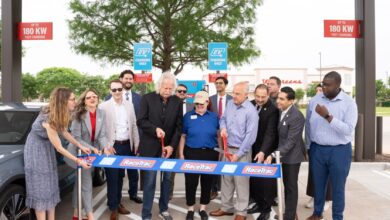New Tech Promises Faster Charging, Longer-Lasting EV Batteries

Two breakthrough technologies could allow electric vehicle batteries to charge in 10 minutes and last much longer, dramatically boosting their appeal to consumers.
A next-generation battery pack from Swedish EV manufacturer Polestar and Israeli battery company StoreDot responds to the consumer concern that EVs take too long to charge and are less convenient than fossil-fuelled cars that take minutes to refill with gas.
- Concise headlines. Original content. Timely news and views from a select group of opinion leaders. Special extras.
- Everything you need, nothing you don’t.
- The Weekender: The climate news you need.
In April, Polestar researchers used StoreDot’s unique silicon-dominant battery cell technology to charge an electric hatchback from 10% to 80% in just 10 minutes, the EV company said in a news release. This is the first demonstration of fast charging silicon-dominant cells in a drivable vehicle, not just a laboratory environment, writes The Driven.
“Common EV cell chemistries address either energy or power requirements,” said Dan Corfas, product and system engineering director at StoreDot. “We’ve changed the rules with our silicon-dominant anodes” by developing “long-lasting cells with both high energy and extreme fast charge capability.”
The 10-to-80% charging range is where EV batteries charge fastest, reports Car and Driver. All else being equal, charging rate slows considerably below 10% or above 80%—so much so that the last 20% charge to full battery can almost double the overall charging time.
“What’s interesting about StoreDot’s silicon cells is that the charge speed doesn’t change throughout the charging process,” Polestar said.
“With this battery, it almost doesn’t matter when you stop to charge your car,” said the company’s battery system chief engineer, Jens Groot. “Whether you stop to recharge at 10% or 60%, you’ll achieve the same speeds.”
“In this sense, the experience is more like filling up your car at the petrol station.”
Meanwhile, researchers from the Massachusetts Institute of Technology (MIT) and Washington University in St. Louis made an “unintended” discovery of a new material structure that can increase battery energy density.
The development could “revolutionize energy storage by enabling the capacitors in electric vehicles or devices to store energy for much longer,” reports LiveScience. “The new discovery—which the scientists say was unintended and builds off novel electronics work—could be the foundation for better battery life across consumer devices such as laptops or smartphones, as well as more flexibility in grid-scale energy storage.”
The researchers discovered that a tiny gap in the core of capacitors in a battery can increase its “relaxation time”, or the time it takes to dissipate energy, allowing units to last longer before recharging, LiveScience explains. The technology could deliver increased density up to 19 times higher than current capacitors, allowing energy “to be accessed very fast on demand without sacrificing the stability of long-term storage.”
The discovery has applications in high-power electronics, high-frequency wireless communication systems, and integrated circuit chips, Washington University said in a statement. “These advancements are particularly crucial in sectors requiring robust power management solutions, such as EVs and infrastructure development.”
“We’re not yet 100% optimal, but already we’re outperforming what other labs are doing,” said Sang-Hoon Bae, assistant professor of mechanical engineering and materials science at the McKelvey School of Engineering at Washington University in St. Louis.
“Our next steps will be to make this material structure even better so we can meet the need for ultrafast charging and discharging and very high energy densities in capacitors.”
He added that “we must be able to do that without losing storage capacity over repeated charges to see this material used broadly in large electronics, like EVs and other developing green technologies.”



